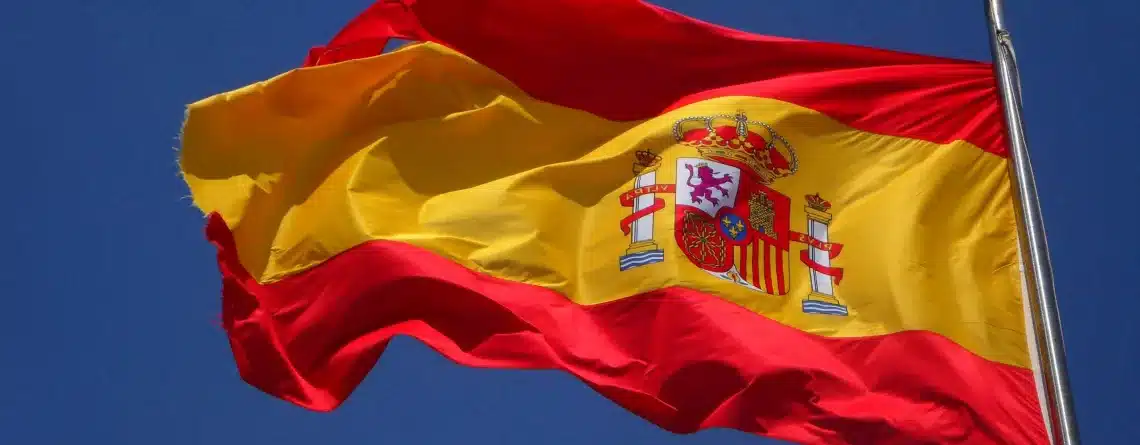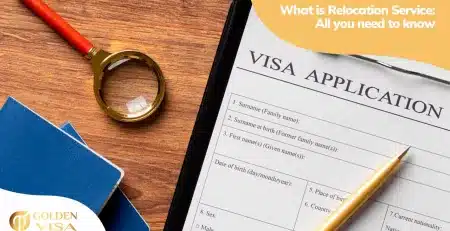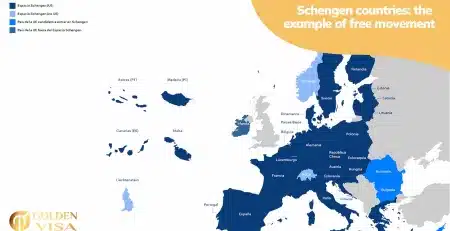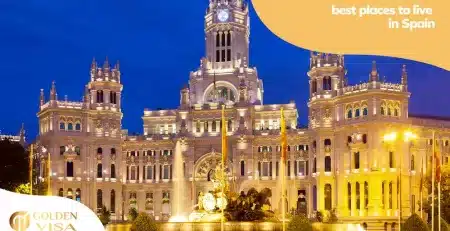Every year, countless people choose Spain not only for its charming culture and pleasant climate, but also as a setting for a new beginning. The country has emerged as an ideal destination for those looking to expand their academic horizons and for those who wish to enjoy their lifestyle without work commitments.
In this Apply Golden Visa post we will explore two key residency pathways: the Student Residence, which opens doors to education and cultural experience, and the Non-Profit Residence, perfect for those who aspire to live in Spain while maintaining their financial independence. Discover how these options can make Spain more than just a temporary destination, but a permanent home full of possibilities.
Common requirements for the types of residences in Spain
Before we dive into the most popular types of residency in Spain, there are a few things you should know. These details are key to understanding how it all works and so that you can choose the option that best suits your plans. Let’s take a look at the most important points.
- Not be a citizen of a state of the European Union, the European Economic Area or Switzerland, or a family member of citizens of these countries, to whom the European Union citizenship regime applies.
- Not be banned from entering Spain and not be refused entry into the territorial space of countries with which Spain has signed an agreement to this effect.
- Have sufficient financial means to reside and, where appropriate, to support family members who wish to come.
- Have public or private insurance.
- Not have a criminal record in Spain or in their previous countries of residence for the last five years for offences under Spanish law.
- Not suffer from any of the diseases that may have serious public health repercussions in accordance with the provisions of the International Health Regulations 2005.
- Have a valid passport, travel document or visa in force that identifies him/her perfectly and validly.
- Justify the reasons for entry and stay.
- Do not have Spanish nationality.
Before going into the types of residence, moreover, foreigners may be authorised to enter Spain, even if they do not meet the requirements, for exceptional reasons such as humanitarian reasons, in the public interest or in fulfilment of commitments acquired by Spain.
10. Pay the fee for the procedure
Knowing these main requirements, we now turn to the two main types of residences that currently exist: the student residence and the non-profit residence.
Student residence

A student residence is one that allows a foreigner to reside in Spain for the sole purpose of carrying out one of the following activities:
- To pursue or further studies.
- Information or training activities.
- Participate in exchange programmes.
- Non-work placements.
- Volunteering.
- “Au pair”.
Duration of residence for foreign students in Spain
- Does not affect or limit the performance of studies or activities.
- The activity is compatible with the studies.
- Not to exceed 30 hours per week.
- The duration of the work is the same as the duration of the residence.
This residency may be renewed provided that the “General Requirements” as well as the specific requirements are fulfilled and proof of successful completion of their studies is provided.
The renewal must be made 60 calendar days before the expiry of the residence permit or within 90 calendar days after the expiry date of the card. In the latter case, there may be an administrative penalty.
Specific requirements for student residence in Spain
- If you are a minor, you must be authorised by your parents or guardians with proof of the centre, organisation, entity or body responsible for the activity and the period of stay.
- Have been admitted by the educational institution, organisation in charge of the voluntary service programme or approved university to a full-time programme leading to a certificate of studies.
- Have guaranteed financial means to cover the costs of your stay (or proof of regular receipt of income) and return to your home country. If you also want to bring your family members, the following amounts must be taken into account:
- 100% IPREM for the applicant
- In the case of an exchange or mobility programme, the financial means shall be provided by the programme itself.
- 75% IPREM for the applicant’s first family member.
- 50% of the IPREM for the rest of the family members.
Family members” are considered to be the spouse, unmarried partner or children under 18 years of age or disabled in a situation of dependency.
Process for obtaining a student visa in Spain
The application must be made in person or through a representative at the Spanish diplomatic or consular mission where the foreigner resides.
In order for the visa to be granted, the following documents must be presented:
- Valid passport or travel document.
Documentation proving that the requirements of the previous section and the common requirements have been met. - Maximum time limit for a decision → 7 days from receipt of the application. In the event that no decision is taken, the application will be understood to be favourable.
Subsequently, it must be collected in person within two months of notification. Otherwise, it will be understood that the applicant has renounced the visa and will lose it.
In the event that the foreigner is going to undertake higher education studies, the institution where he/she is going to undertake the course may submit the application. In this case, the deadline for a decision is 1 month.
If the stay is longer than 6 months, the foreigner must apply for the TIE within 1 month of entering Spain.
What happens if my visa is denied? The diplomatic mission or consular post will notify the interested party of the reasons for the decision as well as the appeals that can be lodged against the refusal.
Non-Profit Residence

Non-profit residence is an authorisation that allows a foreigner to stay in Spain for a period of more than 90 days and less than 5 years without carrying out work or professional activities.
Requirements for non-profit residence
In addition to the common requirements, it is very important to have sufficient financial means to be able to reside in Spain or to prove regular receipt of income. Either for the applicant himself or for his family members
Have guaranteed financial means to cover the costs of their stay and return to their country. In the event that you also want to bring your family members, the following amounts must be taken into account:
- 400% IPREM for the applicant.
- In the case of an exchange or mobility programme, the financial means shall be provided by the programme itself.
- 100% IPREM for their family members.
Process for obtaining non-profit residency
This is all the information you need to know in order to apply for non-profit residence:
- Subject Entitled to Apply: The foreigner must apply in person. In the case of minors, the application must be made by their legal representative.
- Place of presentation: It is presented at the Spanish diplomatic mission or consular office in the jurisdiction where the foreigner resides.
- Fees to be paid: These are generated when the application is accepted and must be paid within 10 working days. These fees include visa issuance fees and residence authorisation fees (Form 790, code 052). Payment can be made through the Administration’s payment gateway or at a bank after downloading and printing the form.
- Visa Resolution Timeframe: Notification of the visa decision will be given within a maximum of three months from the application. If the visa is granted, the applicant has one month to collect the visa in person, otherwise the visa is considered to be waived and the procedure is archived.
- Entry to Spain and Duration of the Authorisation:After collecting the visa, the applicant must enter Spain within the validity of the visa, no longer than three months. The initial temporary residence authorisation lasts for one year, starting from the date of entry to Spain.
- Application for a Foreigner’s Identity Card: This must be applied for at the Police Station in Spain within one month of entry. The requirements for the application are a passport or travel document, official form (EX-17), proof of payment of the card fee, and a recent colour photograph with a white background.
Apply Golden Visa, your experts in residency procedures.
In this post we have looked at the two main types of residency in Spain: student residency and non-profit residency. Although we have covered a lot of ground, it is important to remember that these are not the only options available. There are other paths, such as Arraigo Familiar and Arraigo Laboral, each with their own particularities and requirements.
The importance of having the guidance of experienced lawyers cannot be underestimated. At Apply Golden Visa you will find qualified professionals who can not only facilitate the handling of these procedures, but also provide advice to ensure compliance with all requirements and maximise your chances of success.
So, whether you are considering studying in Spain, living here without working, or exploring other avenues of residency, remember that the knowledge and experience of a good lawyer can be the key to opening the doors to your new life in this country full of opportunity and beauty.













Leave a Reply